Denali Park. June 1, 2015.
When June comes to Denali Park, there are usually signs of winter everywhere. Southern facing slopes on the mountains may be turning green, but the north flanks of our valleys are often laden with snow. Walking our dogs in late May often means tromping through puddles of snowmelt. By the beginning of June my greenhouse is fully planted— but I don’t dare turn off the heater at night.
This year in Denali, everything is different: summer is old news. Our record-breaking mild winter left little to no snowpack for melting. The taiga forest behind our house was dry six full weeks ago; long ago we put away the break-up boots. The landscape out my window this morning is knockout July green.
Spring—it usually lasts a few days here— was actually a warm and extended season. And it was pleasant. The Sandhill Cranes flew overhead toward nesting grounds that offered unusually good foraging. Grizzly bears emerged from dens to hospitable temperatures for their young. Even the pasque flowers benefitted from the early breakup, not having to fight their way through snow. April and early May served as a gorgeous prelude to summer, but those who live here recognize that all is not well. Today temperatures will rise into the high seventies or eighties. That’s about as warm as it ever gets. Fire danger has been rated extreme for weeks. We’re all hoping for rain.
For my dog sledding family of canines and humans, the entire last year has been different and eerie. The winter of 2014-15 was one big disappointment. Typically we sled 2000 miles with our huskies each season, in anticipation of long-planned races and trips. This winter instead of mushing we had to train on four-wheeler ATVs until Christmas; then we were forced to truck long distances to find snow. Races were cancelled; our own trips delayed. For the second time in the Iditarod’s history the race start was moved north from Anchorage to Fairbanks. There wasn’t enough winter on the traditional route.
Signs of climate change are everywhere in Alaska. Our snowfields and glaciers are vanishing at an alarming rate; loss of crucial sea ice jeopardizes coastal villages that I’ve visited by dog team. Countless species that inhabit this northern land are threatened. To deny these facts is impossible, however depressing and overwhelming it feels. Yet I know that we must look this challenge in the eye and consider the long-term ramifications of our warming climate. I dare myself to face the real possibility that there might come a time in Alaska without winter. I try hard to grapple with the broader consequences about food sources and disease, wildfire, and communities swept into rising oceans.
This line of thinking always casts me into a version of despair; it’s too much to contend with the magnitude of such devastation. For solace I look out the window to my sled dogs. Abbott and Tiger, Cheddar and Muenster and the others have a unique knack to cheer me up. But this morning, in my ill humor, when I look at Brie wagging her tail alongside her three four-week-old pups, I consider the possibility that sled dogs themselves might become obsolete. These founding canines of the north might no longer have a place—Brie’s puppies might be one of the last generations to relish the traditional dog sledding life. That potential leaves me downright miserable, yet that can-do voice rings in my mind. Right now I need to be glad those pups are on the ground. Right now, 9:00 AM on June 1, 2015, it may already be 70 degrees, but my twenty-nine huskies are hungry. And one thing I can do—right now—is feed them.
When I walk into the dog yard, they all start woofing and wagging. Abbott picks up his dish and prances with it locked in his widened jaw. Crouton chases his tail in glee. Melli pounces on her bowl as if it’s a squirrel that might get away. Spaghetti and Bowtie play tag in their pen. Muenster runs in circles with his pet rock—yes he has a favorite rock that he carries in his slobbery mouth. Everyone celebrates the upcoming breakfast. Mealtime is one big excuse to get rowdy.
With a five-gallon bucket in one hand and a ladle in the other, one by one I serve up a watery mixture of kibble and leftovers from last night’s chicken dinner. Muenster drops his rock on the ground in exchange for soupy mixture. With some coaxing Abbott relinquishes his bowl. I work my way past Tiger who insists on a pat before eating. Then I come to the old boys Lightning and Spot. They were part of my Iditarod teams in 2003 and 2005. They are the last two elders of that generation still in our yard.
At ages fifteen and sixteen Spot and Lightning’s best days are over. They no longer run in harness. We take them for walks instead. Now they wag their tails and watch me through cataract-clouded eyes. They move slower than the others, but there is nothing wrong with their elderly instinct to eat. Finally I reach the whelping pen at the edge of the dog yard where the new little ones romp. Chowder, Chili, and Stew. They look to the bucket I carry. At four weeks they’re still nursing, but they already squeak and wiggle in honor of mealtime. I pat each one and motion to their mother Brie to get on top of her house where she can dine in peace. She’s happy to cooperate. Then I take the pups in my arms and carry them to a path in the tundra. It’s time for their morning outing.
They follow me for a few steps. Stew plops down to chew on a stick. Chili grabs Chowder’s tail, and they both pounce on a spruce cone. They draw me into their world of dwarf birch, lowbush cranberry, and a hole in the ground dug by a red squirrel. I spot a few early blueberries, tiny and white. A mosquito lands on Chowder’s tender nose. Stew stumbles in a hoofprint of a moose who recently walked by.
The pups draw me into their wondrous place of bugs and dirt. Without thinking I’m rolling on the ground with them. I smell Chili’s puppy breath when she nips my nose. I stroke Stews’ innocent face. They chew on each other and me, and in the process they draw me into musky soft earth and its lichen, green moss, and rising shoots of fireweed. I whistle at them and they cock their puppy heads before pouncing my face in glee. We savor each shared breath.
As quickly as our fun begins it ends. Four-week-old sled dog babies tire quickly. When I carry them back to their pen they relax in my arms, and I walk a little bit easier. Now I can think again without getting all cramped up in a knot of worry. I leave them with Brie and unclip Spot and Lightning for their morning stroll. The old boys sniff the earth. I coax them to move along.
We amble together for fifteen minutes—and my own musings wander. Maybe the challenge of confronting climate change, or anything of magnitude, is to identify a starting point. For me, maybe my own back yard is my best shot at a way in. It happens that I live in Alaska, where change is visible and accelerating. It happens that I share life with twenty-nine Alaskan huskies. Together we are bound to this northern land and its dramatic seasons. My dogs’ winter calling is my own.
Just recognizing this simple fact might be my first step. Long ago this northern place—its topography, trails, and creatures—captured my passion and my imagination. Three and half decades since moving here, my alliance with the Alaskan landscape and her people comes with a growing sense of responsibilty—and angst about our future. It’s easy to feel inadequate, when facing such monumental issues. All too often my words fall short and my resolve wanes.
But this morning my dogs have gotten me out of my head and back onto the trail. As Spot and Lightning trundle along sniffing the squirrel hole where the pups played, I’m reaching for hope. Maybe, just maybe, by starting in my own backyard I can dredge up the courage, and a whiff of wisdom, to add my voice to the critical conversation about our changing climate. That’s the least I can do for this warming land. I have to try.
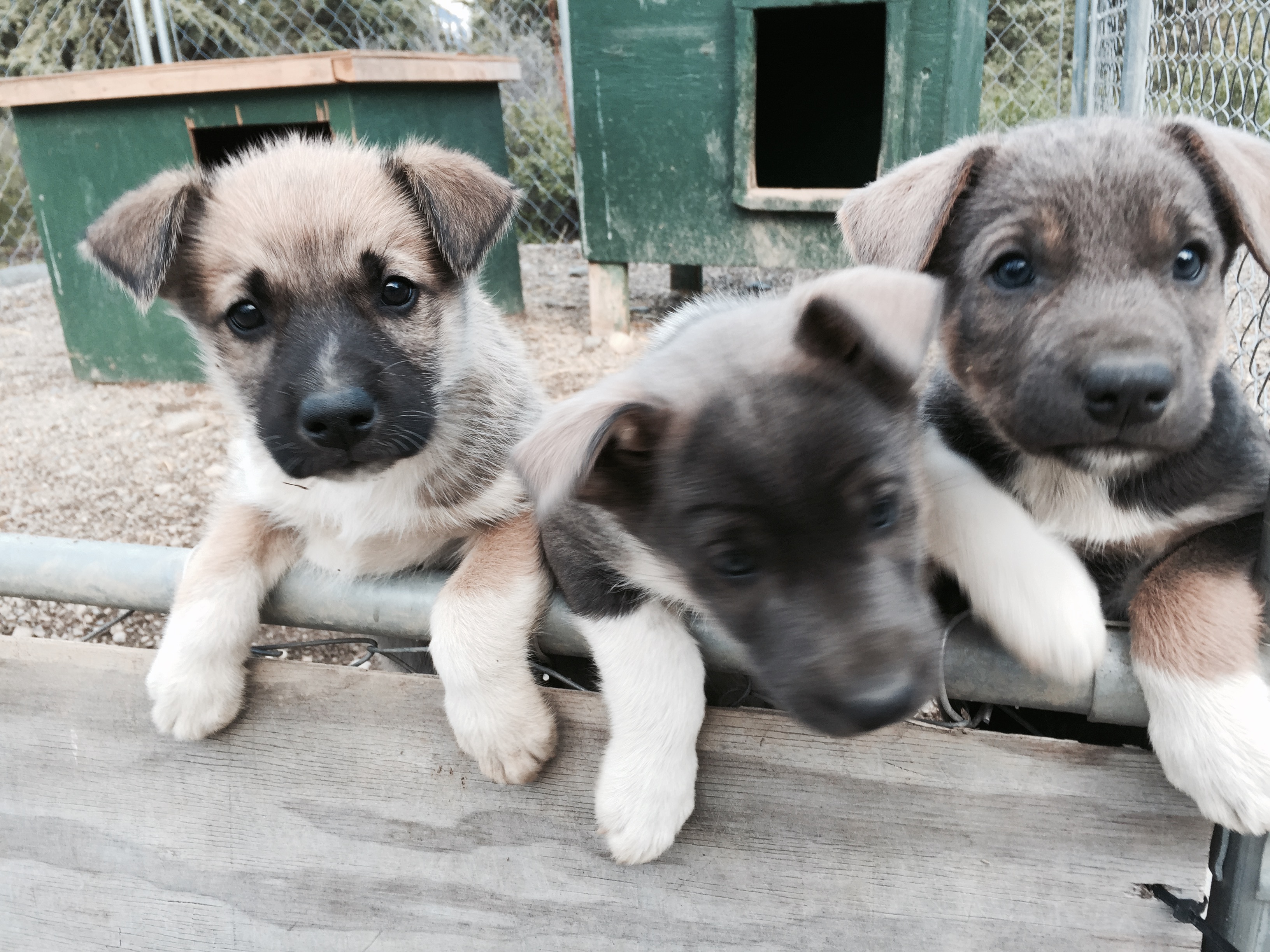
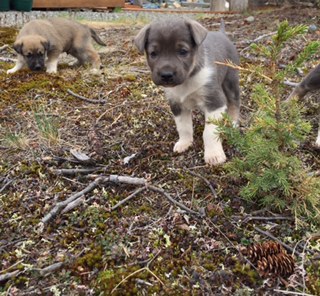

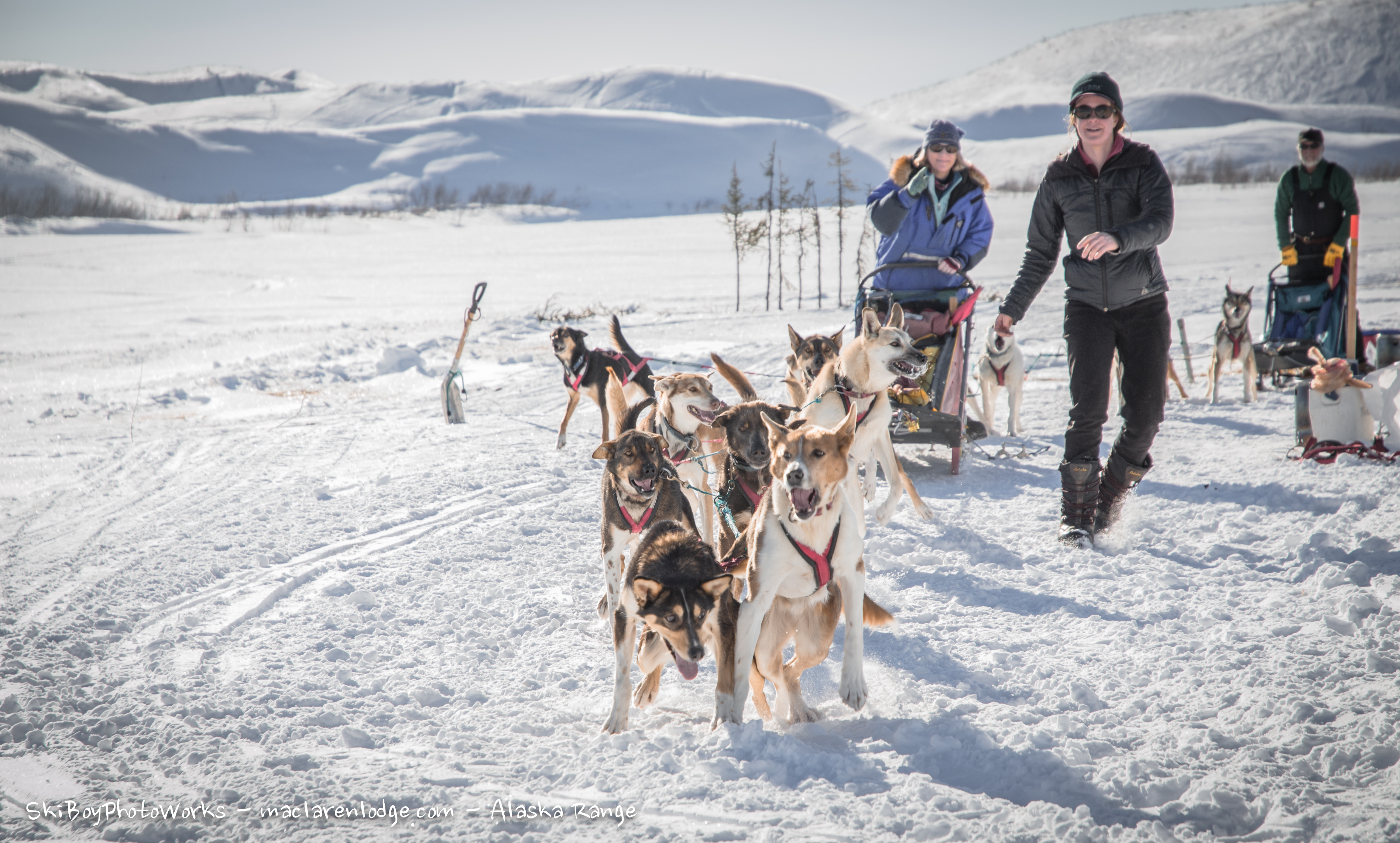
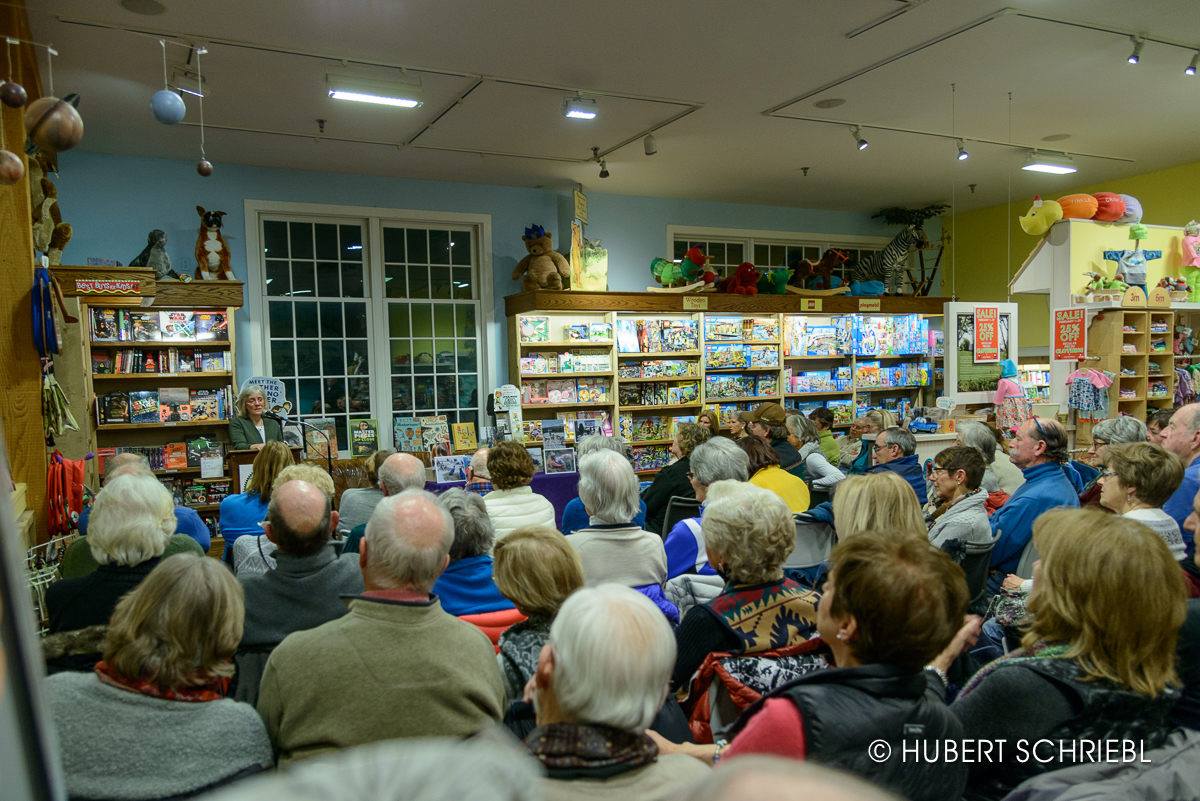
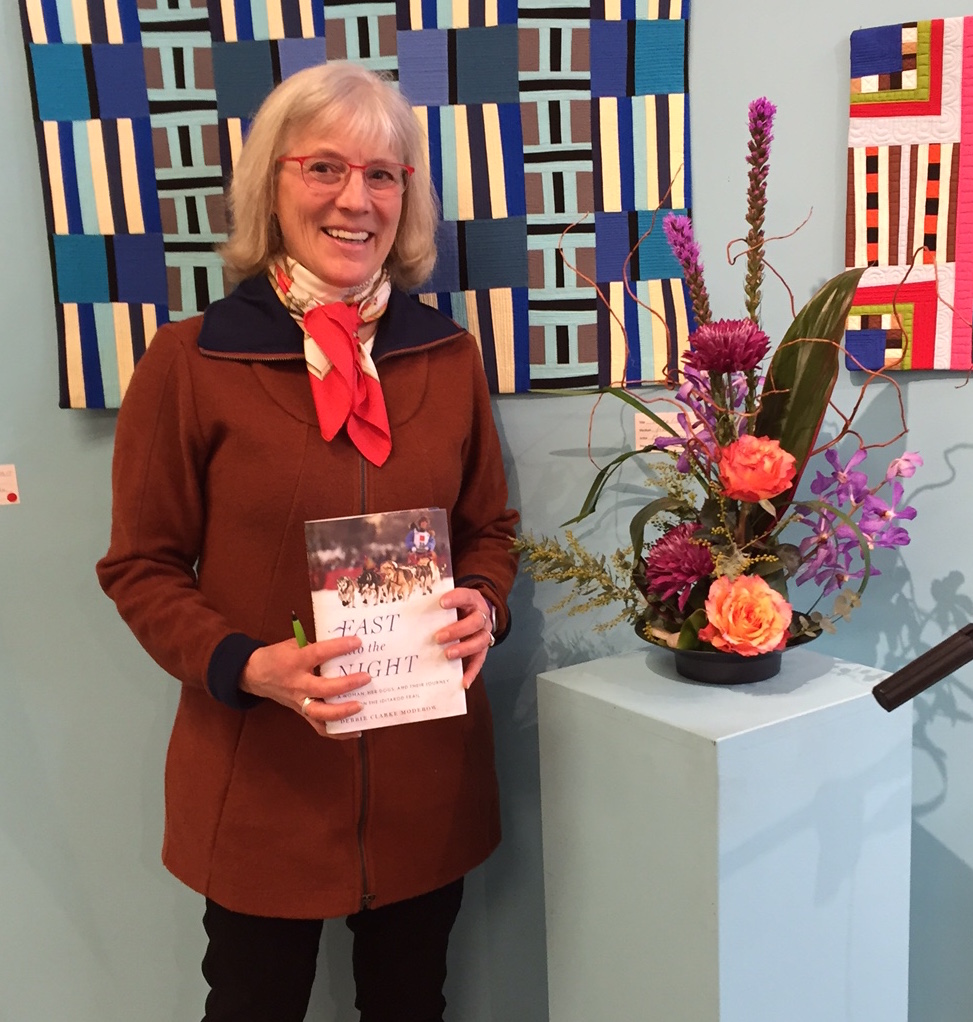
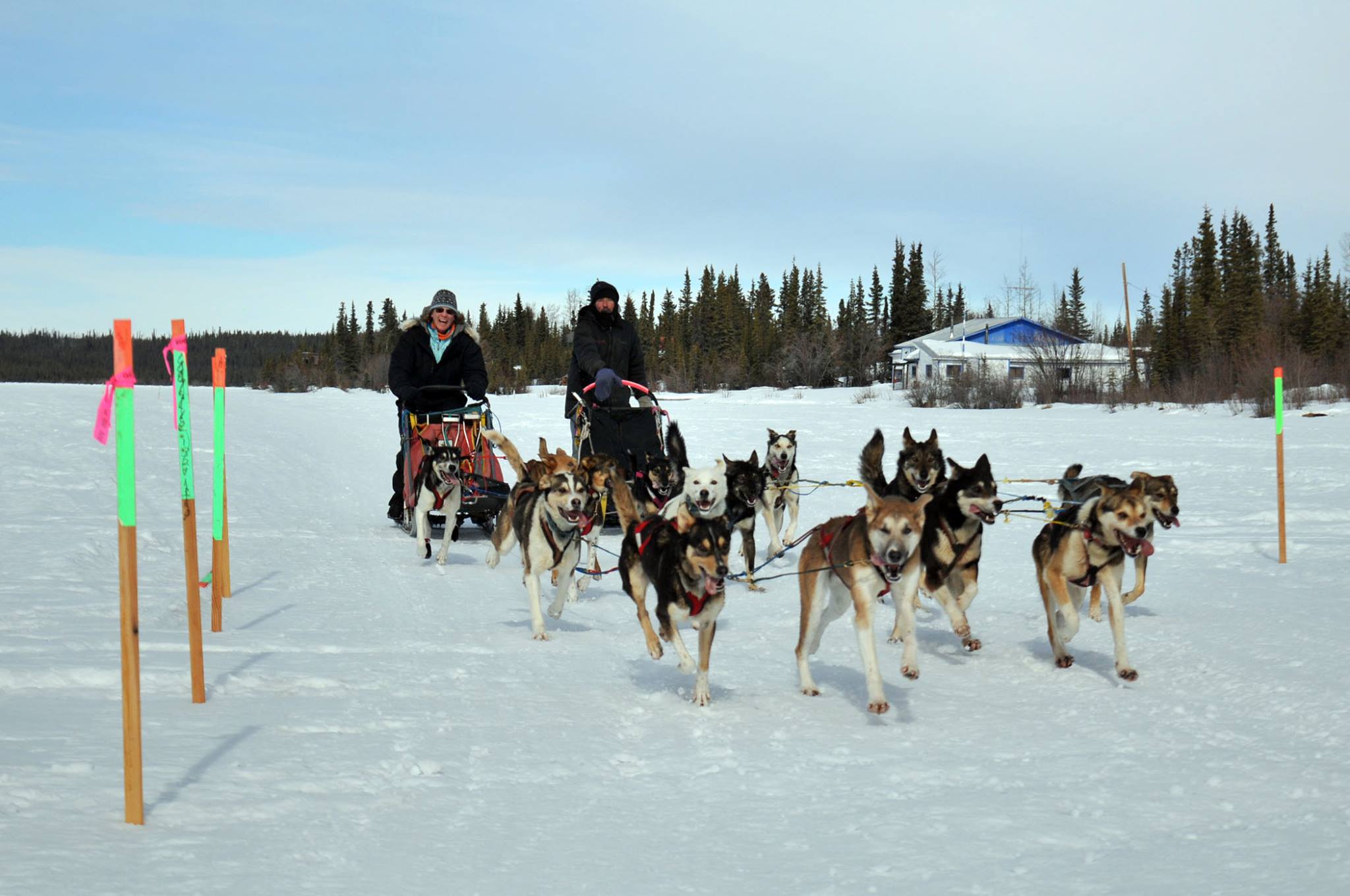
Leave A Comment